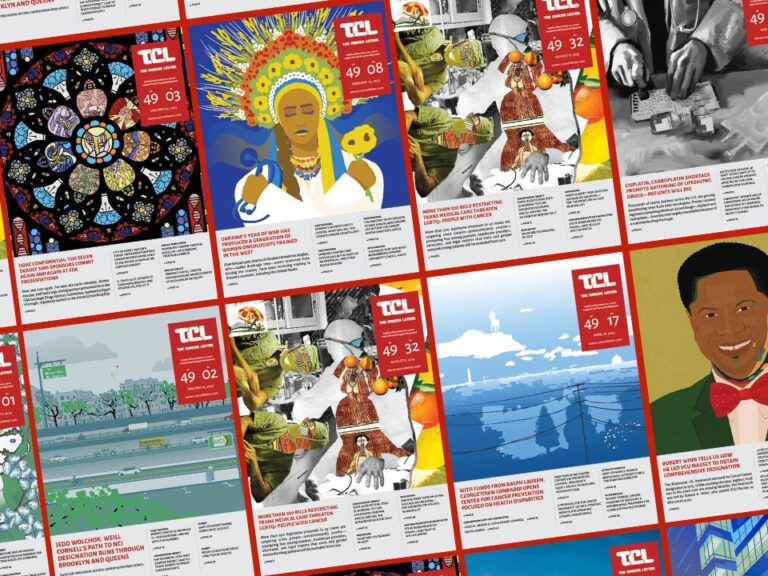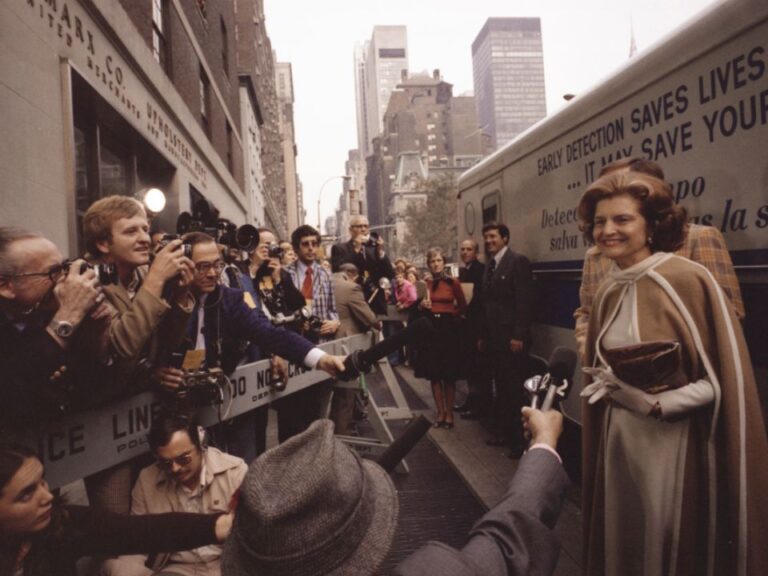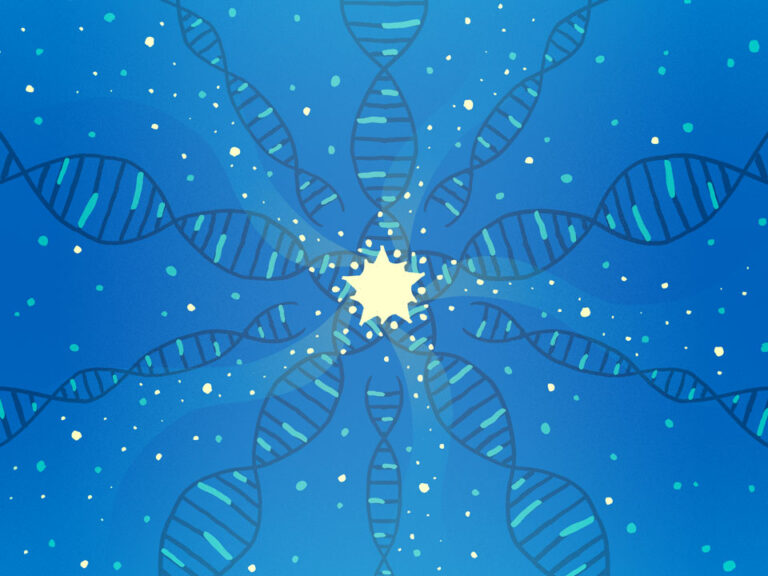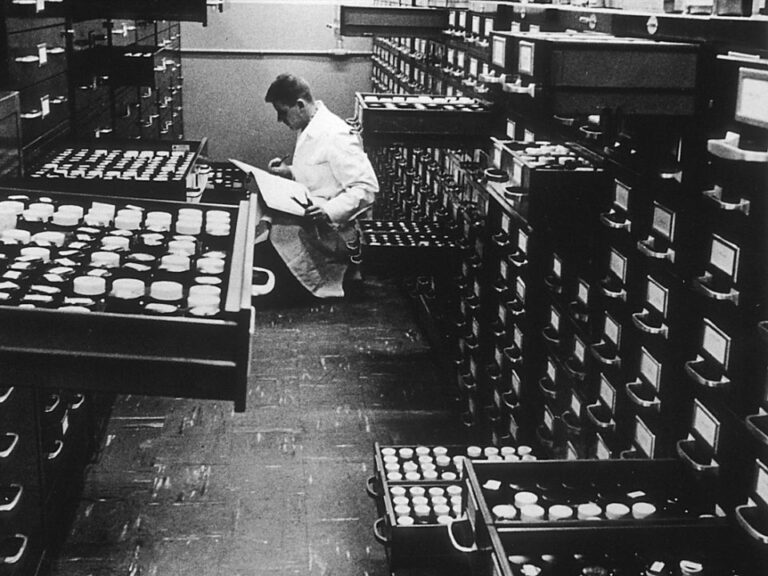The year 2020 was, by any reckoning, one that most of us would prefer to relegate to history books—fun to read about, and hopefully not condemned to repeat.
As if the product of the mind of a dystopian novelist, this annus horribilis had it all: A pandemic, an economic recession, a divisive and isolationist presidency, unprecedented threats to American democracy, disinformation campaigns, social unrest, political chaos, lackadaisical public health messaging, and many, many unwarranted deaths.
But, 2020 was also a year of survival and resilience—the heroism of first-line responders and a mobilization in health care on a scale reminiscent of war economies, the unmatched global acceleration of COVID-19 research and vaccine development, the sparking of one of the largest movements for racial justice in history amid a long-overdue conversation about police brutality, and a firing-up of the American electorate, which turned out in record numbers to recalibrate the political compass of a nation under siege.
Many of these events put oncology and cancer research in the national spotlight, fundamentally changing the business of cancer care and research funding. At The Cancer Letter, we not only covered each development with renewed conviction, but also charted a course for leadership and action:
To rapidly disseminate information on best practices and strategies for coping with COVID-19, we invited leaders in oncology to share their insights as the pandemic overwhelmed hospitals across the country (The Cancer Letter, Aug. 7, 2020);
In partnership with the Association of American Cancer Institutes—and in response to the national dialogue on racial equity and health disparities—we designed a study of cancer centers to assess representation of women and racial minorities in the oncology leadership pipeline (The Cancer Letter, Oct. 9, 2020);
In line with growing scholarship on the treatment of women in oncology, we set out to survey the experiences of women who encounter gender bias and sexual harassment in the top tiers of academic medicine (The Cancer Letter, Oct. 2, 2020).
We also set up a coronavirus landing page to collate our coverage of the pandemic, and asked our audience to share their 2020 reading list—both received significant web traffic.
These stories, conversations, and editorials drove the bulk of The Cancer Letter‘s readership in 2020.
Despite the eclipsing effect of COVID-19, noteworthy gains were made in oncology:
A broad collaboration of healthcare research organizations demonstrated that real-world endpoints can be used to describe patient outcomes that are analogous to results generated through conventional endpoints in clinical trials (The Cancer Letter, Sept. 25, 2020);
States with Medicaid expansion have lower overall cancer mortality, researchers at Memorial Sloan Kettering Cancer Center found. However, no additional decrease was observed in Black populations because of a worse baseline (The Cancer Letter, June 5, 2020);
Sharp declines in mortality rates for non-small cell lung cancer in recent years are driven primarily by advances in treatment, NCI researchers concluded in a study published Aug. 12 in the New England Journal of Medicine (The Cancer Letter, Sept. 4, 2020);
An artificial intelligence model by Owkin, a company headquartered in New York City and Paris, has provided proof of concept that machine learning can predict gene expression across cancer types (The Cancer Letter, Oct. 30, 2020);
NCI produced its master plan for the Childhood Cancer Data Initiative, an ambitious data federation for pediatric cancers—which, if done right, is anticipated to become the gold standard for a new generation of comprehensive cancer databases (The Cancer Letter, Dec. 4, 2020).
As the United States deploys a novel vaccine for COVID-19 and prepares for a Biden presidency, and as oncology celebrates the 50th anniversary of the National Cancer Act, The Cancer Letter stands ready to drive conversations in a new era.
This top-25 list is compiled based on The Cancer Letter‘s web analytics:
1
Trump et al. are wrong: Biden Cancer Initiative is not to be confused with the Beau Biden Cancer Moonshot


On Nov. 15, shortly after midnight, President Donald J. Trump tweeted a link to a New York Post headline:
“Tax filings reveal Biden cancer charity spent millions on salaries, zero on research”
Waking up later that morning, Fox News host Laura Ingraham and former Trump campaign manager Corey Lewandowski, gleefully lent their voices to the now-familiar cacophony of disinformation. A day later, Fox News host Sean Hannity joined their chorus.
For those just tuning in, the president was retweeting a story about the Biden Cancer Initiative, a small organization that is not to be confused with the Beau Biden Cancer Moonshot, a bipartisan effort to increase funding for cancer research.
2
What to expect: Oncology’s response to coronavirus in Italy; “It’s like being in a war”


To get a sense of how COVID-19 will affect oncology in the U.S., The Cancer Letter called Giuseppe Curigliano, associate professor of Medical Oncology at University of Milano and the head of the Division of Early Drug Development at European Institute of Oncology, Italy, who is based in the Lombardy region—the epicenter of the outbreak.
“So this is actually the perception that I have—it’s like being in a war or under a terrorist attack when usually 10% of people go in intensive care,” Curigliano said to The Cancer Letter.
3
Coronavirus vs. oncology: Meeting cancellations, travel restrictions, fears about drug supply chain


Forecasts of the inevitable spread of coronavirus can be difficult to ignore, especially at a time when many of us are making travel plans for this spring’s big cancer meetings.
The decision was made all the more difficult earlier this week, as cancer centers and at least one biotechnology company—Amgen—implemented travel bans that are expected to last through the end of March and beyond. The Cancer Letter was able to confirm such travel bans at Fred Hutchinson Cancer Research Center, MD Anderson Cancer Center, and Dana-Farber Cancer Institute.
4
Joe Biden has an unparalleled grasp of the science and politics of cancer


For the first time in U.S. history, the White House will soon be occupied by a president who has demonstrated a deep understanding of cancer research.
In January 2016, seven months after his 42-year-old son, Beau, died from brain cancer, then Vice President Joseph Robinette Biden Jr. became the catalyzing force behind the Moonshot, an effort to understand the intricacies of cancer, and find cures.
5
COVID-19 vs. community oncology: Flatiron’s data provides first damage assessment


Community oncology practices in the United States are reeling from a sharp decrease in business—whether you look at new patients, chemotherapy visits, or non-chemo visits—the result of reduced activity and stay-at-home orders across the country to mitigate the spread of SARS-CoV-2.
Early data compiled by Flatiron Health and made available exclusively to The Cancer Letter make it possible to visualize the severe impact of the COVID-19 pandemic on community oncologists.
6
Otis Brawley: I could have been George Floyd, too


The past ten days have seen an outpouring of emotions as American society, devastated by the tragic murder of George Floyd by four Minneapolis police officers, plunges into a crisis of conscience.
Floyd’s death may be a pivotal point in America, similar to the televised beating of peaceful civil rights marchers by police on the Edmund Pettus Bridge in 1965. It has led to a number of protests and, unfortunately, some violence, including an attack by federal law enforcement as they beat and pepper-sprayed peaceful protesters in front of the White House.
The use of force against demonstrators in front of the White House is particularly ironic, considering that this entire series of events stems from an act of police brutality.
The police brutality is the tip of the iceberg. The fact is, it is the most obvious and dangerous aspect of systemic racism. There are a number of social injustices that collectively make blacks feel that their lives are not valued, and these issues are not being addressed by American society as a whole. Many Americans simply do not care, or aren’t aware.
7
Pamela Kunz: “In any other industry, if someone had behavior like that, they would be fired.”


Pamela Kunz said she left Stanford School of Medicine because of years of gender-related microaggressions and verbal abuse she experienced there.
She wasn’t holding back on letting the institution know what was going on every step of the way, she said.
“I let them know, for actually quite a while, that I was unhappy and that I felt that I was being discriminated against for my gender. I gave them examples of what I described as, pervasive microaggressions and verbal harassment,” Kunz said.
8
COVID-19 and Cancer Consortium


We are living in unprecedented times. There remains a great deal of uncertainty about COVID-19 and its effects on individuals, especially the elderly and the immunocompromised. Cancer patients form a unique subset of individuals who are often both elderly and immunocompromised, may have significant comorbidities, and may be actively receiving treatment.
In order to better understand the scope and severity of infection in cancer patients, we are soliciting information under the auspices of a multi-institutional collaboration, the COVID-19 and Cancer Consortium (CCC19).
9
American Cancer Society announces a wave of furloughs and layoffs as COVID-19 constricts fundraising


The American Cancer Society earlier this week announced immediate furloughs and layoffs of its staff citing “a significant financial hardship” triggered by the novel coronavirus.
“The American Cancer Society has never faced a threat to our mission like the coronavirus,” the charity said in a statement. “The COVID-19 pandemic has severely impeded the American Cancer Society’s annual fundraising activity. Regrettably, this has created a significant financial hardship and is forcing several cost saving measures.
“While we are pulling back in every area, there is no way to close the gap between current revenue and expenses without immediate furloughs and a reduction in workforce over the next several weeks. It is an aggressive timeline with painful outcomes, but it is the only path forward for ACS to conserve the most resources to fund our life-saving mission.”
Related:
ACS faces precipitous drop in fundraising; Uncertainty surrounds fall round of grants (The Cancer Letter, June 19, 2020)
American Cancer Society staff given seven days to vacate the National Home Office (The Cancer Letter, July 24, 2020)
10
Class of drugs used to treat CAR T-cell toxicity may reduce COVID-19 deaths; Two randomized trials announced


A class of drugs that has been used to treat adverse events associated with CAR T-cell therapy is emerging as a potential treatment for COVID-19.
The available drugs, both interleukin-6 receptor antagonists, have the capacity to treat the cytokine release syndrome, sometimes also known as the cytokine storm syndrome, a large, rapid release of cytokines into the blood as a result of viral infections or immunotherapy.
The drugs—two of which are now being rushed into late-stage clinical trials—are approved by FDA for rheumatology indications
11
What cancer immunologists are doing about COVID-19


It’s hard to fathom the number of scientific discoveries that are exploding from the COVID-19 disaster. Though there may be tumbleweeds on every street around the globe and impotent silence in the shuttered stores of every town, the scientists at the frontline of this epidemic are busier and more energized than they’ve been in a long time.
The tragedy and confusion of our current reality will linger for a very long time to come, but the history of medicine is likely to look back on these months with humbled reverence and gratitude.
12
Robert Winn: I could have been George Floyd—many times; Reflecting on the cancer of racism


I am almost certain that no other director of an NCI-designated cancer center can claim the distinction of having had a gun pulled on them by police.
I’ve had that experience not once, but twice.
I struggled a great deal in deciding whether to put something together this week in response to the senseless killing of Mr. George Floyd. His untimely death has stirred up a number of complex issues, which I thought I had wrestled under control.
13
COVID-Lung Cancer Consortium: An example of how the lung cancer community came together in challenging times


The COVID-19 pandemic has created a host of diagnostic, treatment, and follow-up problems for patients with cancer of all types, and this is particularly true for patients with lung cancer, their families, and health care providers.
Everyone wanted to know and was worried—would patients with lung cancer be more or less likely to contract COVID-19, and if they did so, would they have more serious disease?
Would their susceptibility to and course with COVID-19 be influenced by the type of treatment they received, such as checkpoint inhibitor blockade, chemotherapy, radiotherapy, or surgery? How would COVID-19 in lung cancer patients respond to COVID-19-targeted therapy?
14
Otis Brawley: Immunotherapy, precision medicine in lung cancer drive sharp decline in cancer mortality overall


As I look through just-published tables of age-adjusted cancer mortality, I recognize an unprecedented development:
Immunotherapy is showing such a dramatic impact in the treatment of locally advanced and advanced non-small cell lung cancer that this effect elevates the statistics for all lung cancer and—this I find astonishing—you can even see its effect in age-adjusted cancer mortality overall.
I am a cautious observer. I resist the common oncologic groupthink that declares any small advance a tremendous breakthrough. In cancer, dribs, drabs and fluky observations have often triggered dancing in the streets, but this is none of the above. It’s big, real, undeniable, and it’s an honor to write these words:
Today, 49 years after the signing of the National Cancer Act, we look at the 2017 cancer data and see validation of its small-c catholic approach to cancer. Rigorous research, visionary drug regulation, and relentless public health measures have brought about tangible change.
Related:
Are drugs really driving the latest drop in lung cancer mortality? Looks like treatment is playing a role, experts say (The Cancer Letter, Feb. 7, 2020)
15
Moffitt CEO Alan List, director Thomas Sellers resign over conflicts of interests involving China


Thomas Sellers, director of Moffitt Cancer Center, and Alan List, president and CEO of the center, stepped down Dec. 18 after an internal review revealed that they violated “conflict of interest rules through their work in China,” cancer center officials said.
The details of their alleged COIs are not publicly available at this time, and if Sellers and List were directly involved with China’s “Thousand Talents” Program, which recruits researchers and academics globally, their exact roles are not known. The internal review at Moffitt also prompted “separation” of another four researchers who were also found to not be in compliance with the center’s policies, officials said.
“We found evidence that people were compensated through the Thousand Talents Program and failed to disclose that,” the cancer center said in a statement to The Cancer Letter.
Related:
Report describes offshore accounts held by Moffitt scientists involved in China’s Thousand Talents program (The Cancer Letter, Jan. 24, 2020)
Attorney: Moffitt has made a “very irresponsible decision”—Thomas Sellers “never was a participant” in China’s Thousand Talents Program (The Cancer Letter, Jan. 24, 2020)
Moffitt execs were made aware of Howard McLeod’s China activities, ousted researcher’s attorney says (The Cancer Letter, March 6, 2020)
John Cleveland: How Moffitt will heal from conflict of interest trauma—and from COVID-19 (The Cancer Letter, May 29, 2020)
Patrick Hwu on the challenge of making Moffitt the “cell therapy capital of the universe” (The Cancer Letter, Dec. 11, 2020)
16
Seeing COVID-19 through a cloud of cigarette smoke


The unprecedented COVID-19 pandemic makes it possible to compare and contrast the public health and political responses to previous health crises.
The most obvious comparison is to the influenza epidemic of 1918-19, which took the lives of 675,000 Americans in less than two years.
Yet a comparison with cigarette smoking, which has killed untold millions of Americans in the 20th century and continues to take the lives of 500,000 a year, is arguably more illuminating. At first glance, comparing COVID-19 to cigarettes seems illogical. Yes, people who take up smoking do so willingly, although most do so before they reach adulthood. And yes, those who contract COVID-19 do not willingly seek out the virus.
17
CCC19 bridging the knowledge gap for patients with COVID-19 and cancer; First results to be heard at 2020 ASCO Annual Meeting


As the healthcare system faces the onslaught of the novel coronavirus SARS-CoV-2, clinicians caring for individuals with cancer face the challenge of a wide gap in knowledge needed to guide decision-making.
While initial reports suggest that individuals with cancer are at greater risk of COVID-19-related sequelae, available data are limited in volume and granularity. As a field that is driven by evidence-based practice, we are hungry for better data to inform clinical decisions and guideline measures to protect our patients and community.
18
Sharpless: COVID-19 expected to increase mortality by at least 10,000 deaths from breast and colorectal cancers over 10 years


The COVID-19 pandemic will likely cause at least 10,000 excess deaths from breast cancer and colorectal cancer over the next 10 years in the United States.
Scenarios run by NCI and affiliated modeling groups predict that delays in screening for and diagnosis of breast and colorectal cancers will lead to a 1% increase in deaths through 2030. This translates into 10,000 additional deaths, on top of the expected one million deaths resulting from these two cancers.
“For both these cancer types, we believe the pandemic will influence cancer deaths for at least a decade,” NCI Director Ned Sharpless said in a virtual joint meeting of the Board of Scientific Advisors and the National Cancer Advisory Board June 15. “I find this worrisome as cancer mortality is common. Even a 1% increase every decade is a lot of cancer suffering.”
19
HOLA COVID-19 study focuses on disruption of cancer care in Latin America


As of September, more than 270,000 deaths have been confirmed in Latin American countries due to the severe acute respiratory syndrome coronavirus 2 (SARS-CoV-2) infection.
Brazil and Mexico are among the top four countries with the highest death toll due to COVID-19, along with the United States and India. It is believed that Latin American countries are especially vulnerable due to high levels of inequality and poverty, crowded living conditions in urban areas, lack of sanitation, slow and uneven governmental response, and strained healthcare systems.
The rapid outbreak of SARS-CoV-2 has changed how health care is delivered in first-world countries—cancer care is no exception, and is a subject of high concern, given the importance of timeliness of interventions in outcomes. The HOLA (Hematology Oncology in Latin America) COVID-19 study was born out of concern for how the ongoing pandemic has affected cancer care in our home countries.
20
COVID-19 and the cancer patient: A call to action for balancing cancer care and viral risk


As COVID-19 has now officially been declared a source of the pandemic, with increasing incidence across the nation, it is without question that the needs of patients with particular vulnerabilities should garner particular attention.
Given the specialized needs of cancer patients, it is imperative to consider how we, as the major cancer centers, may address and communicate how the impact of COVID-19 could impact the timing and delivery of cancer care, and to communicate this information to cancer patients.
21
Lowy: “Our patients are counting on us, and we must not let them down”; NCI Frederick Lab takes aim at COVID-19


NCI’s Frederick National Laboratory for Cancer Research has launched three initiatives focused on SARS-CoV-2:
Identifying genetic determinants of SARS-CoV-2 susceptibility and outcomes at the Cancer Genomics Research Laboratory,
Testing and validating serologic assays for SARS-CoV-2 in the Serology laboratory of the Vaccine, Immunity, and Cancer Program, and
High-throughput screening for small molecule inhibitors of SARS-CoV-2 proteins, with technology developed by the RAS Initiative.
“We think that it was built for a situation like this, where speed, flexibility, and expertise are critical to addressing such a deadly public health threat,” Douglas Lowy, NCI principal deputy director, said April 9 in an emergency virtual meeting of the NCI Board of Scientific Advisors and the National Cancer Advisory Board.
22
Is your cancer center ready for COVID-19?


The Cancer Letter spoke with leaders at Seattle Cancer Care Alliance/Fred Hutchinson Cancer Research Center MD Anderson Cancer Center, University of California, Los Angeles, and Robert H. Lurie Comprehensive Cancer Center of Northwestern University to gauge the impact of coronavirus.
“We don’t want to be alarmist, but we do want to be truthful. The truth is that all cancer patients should be concerned about COVID-19 because they are at higher risk,” said Steve Pergam, medical director of Infection Prevention at Seattle Cancer Care Alliance and clinical and infectious disease researcher at Fred Hutch, which does not provide patient care on its campus. “We are taking numerous precautions, such as screening all patients, staff and providers for respiratory symptoms (including runny nose, congestion, fever or shortness of breath) upon arrival at the clinic.”
23
Raymond DuBois discusses his plans to navigate past the pandemic and take Hollings to comprehensive designation


Raymond N. DuBois was named director of MUSC Hollings Cancer Center effective Aug. 17.
This is an additional role for DuBois, who will continue his other job as the dean of the MUSC College of Medicine. He has held that position since March 2016.
“Our cancer center was established in 1993, and it has evolved over time. It was established to help support the vision of Sen. Fritz Hollings and his legacy of public service, serving our culturally and socio-economically diverse state,” DuBois said to The Cancer Letter. “My vision for the next five to ten years is to take our enterprise to a higher level and to try to integrate our activities more across the state, interfacing better with our statewide clinical enterprise.
“We have several underserved populations in this state. We really want to have a major impact in approaching and solving many of our health disparity issues.”
24
What are you reading?


A reading list is a glimpse into the soul of a community. A reading list is also a reflection of a time. And a projection of visions of the future.
We asked our readers: “What have you read this year that has made an impression on you?”
There was nothing scientific about our sample. There were no guidelines, no boundaries for genre, topic, or contemporary relevance.
We wanted a reading list and we got one: 67 recommendations, the books your colleagues—clinicians, basic scientists, drug developers, regulators, advocates, senior scientists, early-career researchers—have turned to as the pandemic exposed America’s deepest flaws.
25
Northwell Health reopens cancer services after COVID-19 deluge; New York health system explores NCI designation in affiliation with Cold Spring Harbor Laboratory


Any way you look at it, Northwell Health, New York’s largest health system, took a massive hit from COVID-19.
Northwell has treated over 50,000 COVID patients, admitting over 15,000 of them to its hospitals—more than any such system in the U.S.
The financial hit will end up somewhere between $500 million and $1.6 billion, depending in part on how much the U.S. government will kick in, said Richard Barakat, physician-in-chief and director of cancer at Northwell Health Cancer Institute.












